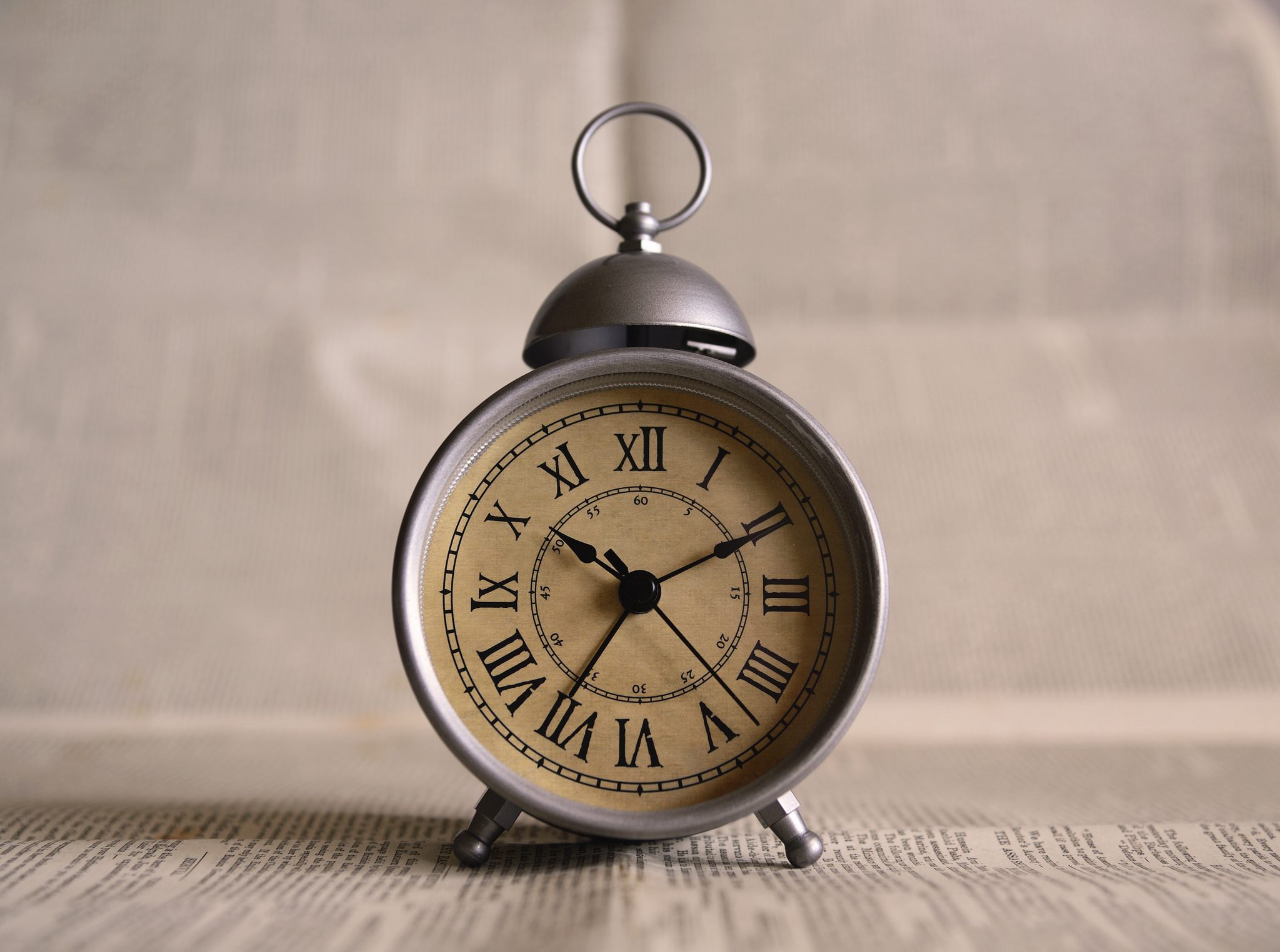
Did you know that the history of the alarm clock dates back to ancient Greece? Yes, you read that right! The concept of waking up on time isn't a modern invention. From water clocks to mechanical wonders, the evolution of the alarm clock is a fascinating journey through time. Imagine relying on a rooster's crow or the sun's rays to start your day. Fast forward to today, and we have digital alarms, smartphone apps, and even smart home devices ensuring we never miss a beat. Whether you're a night owl or an early bird, understanding the history of these timekeepers can give you a new appreciation for that morning buzz. Let's dive into 35 intriguing facts about the alarm clock that will make you see your morning routine in a whole new light!
Key Takeaways:
- People have been inventing alarm clocks for centuries, from water clocks in ancient Greece to modern smart alarm clocks. They impact our culture, productivity, and even space exploration!
- Alarm clocks can affect our health and sleep patterns. Waking up to a loud alarm may cause stress, but innovative alarms that simulate a sunrise can help improve our mood and overall well-being.
The Origins of Alarm Clocks
Alarm clocks have a fascinating history that dates back centuries. Let's dive into some intriguing facts about their origins and evolution.
-
The first mechanical alarm clock was invented by Levi Hutchins in 1787. It could only ring at 4 a.m., the time Hutchins needed to wake up for work.
-
Ancient Greeks used water clocks, known as "clepsydra," to measure time. Some of these water clocks had mechanisms to sound an alarm.
-
In the 14th century, monks used candle clocks to wake up for prayers. The candles had nails inserted at specific intervals, which would fall and make a noise as the candle burned down.
-
The first adjustable mechanical alarm clock was patented by Antoine Redier in 1847. This invention allowed users to set the alarm for any desired time.
Evolution of Alarm Clocks
As technology advanced, so did the design and functionality of alarm clocks. Here are some key milestones in their evolution.
-
In 1876, Seth E. Thomas patented the first wind-up alarm clock in the United States. This clock became widely popular and set the standard for future designs.
-
The first electric alarm clock was developed by General Electric in 1927. It used electricity to power the clock and the alarm mechanism.
-
The 1950s saw the introduction of the clock radio, which combined a radio and an alarm clock. This allowed people to wake up to their favorite radio station.
-
Digital alarm clocks became popular in the 1970s. They used LED or LCD displays to show the time and often featured snooze buttons.
Fun and Unusual Alarm Clocks
Not all alarm clocks are created equal. Some are designed to be fun, quirky, or downright unusual. Here are a few examples.
-
The "Clocky" alarm clock, invented by Gauri Nanda in 2005, has wheels and can roll away, forcing the user to get out of bed to turn it off.
-
The "Sonic Bomb" alarm clock is designed for heavy sleepers. It features a loud alarm and a bed shaker that vibrates to wake the user.
-
The "Flying Alarm Clock" has a propeller that launches into the air when the alarm goes off. The user must catch the propeller and return it to the base to stop the alarm.
-
The "Puzzle Alarm Clock" requires the user to solve a puzzle to turn off the alarm. This ensures they are fully awake before the alarm stops.
Cultural Impact of Alarm Clocks
Alarm clocks have not only been practical tools but also cultural icons. Here are some ways they have influenced society.
-
The phrase "rise and shine" originated from the use of alarm clocks, encouraging people to wake up and start their day energetically.
-
Alarm clocks have been featured in numerous movies and TV shows, often symbolizing the start of a new day or a significant event.
-
The sound of an alarm clock ringing has become a universal symbol of waking up, used in various forms of media and advertising.
-
In some cultures, traditional alarm clocks have been replaced by natural sounds, such as birds chirping or the call to prayer, to wake people up gently.
Modern Innovations in Alarm Clocks
With advancements in technology, modern alarm clocks have become more sophisticated and feature-rich. Here are some recent innovations.
-
Smart alarm clocks can connect to smartphones and other devices, allowing users to control the alarm and other functions through an app.
-
Some alarm clocks use light therapy to simulate a sunrise, gradually increasing light intensity to wake the user naturally.
-
Voice-activated alarm clocks, like those integrated with virtual assistants such as Amazon Alexa or Google Assistant, allow users to set alarms using voice commands.
-
Wearable devices, such as smartwatches, often include alarm functions that vibrate on the wrist to wake the user without disturbing others.
Alarm Clocks in Space
Even astronauts need to wake up on time. Here are some facts about alarm clocks used in space.
-
NASA developed a special alarm clock for astronauts on the International Space Station (ISS). It uses light and sound to wake them up gently.
-
Astronauts on the ISS follow a strict schedule, with alarms set to ensure they wake up, eat, and perform tasks at specific times.
-
The alarm clocks used in space must be reliable and easy to operate in a zero-gravity environment.
-
Some space missions have used music or recorded messages from loved ones as wake-up calls for astronauts.
Alarm Clocks and Sleep Research
Alarm clocks have played a significant role in sleep research and understanding human sleep patterns. Here are some related facts.
-
Sleep researchers use alarm clocks to study the effects of different wake-up times on sleep quality and overall health.
-
The snooze button, introduced in the 1950s, has been studied extensively. Research shows that using the snooze button can disrupt sleep cycles and lead to grogginess.
-
Chronobiologists study how alarm clocks affect circadian rhythms, the body's natural sleep-wake cycle.
-
Some studies suggest that waking up to a loud alarm can increase stress levels and negatively impact mood and productivity.
Alarm Clocks and Productivity
Waking up on time is crucial for productivity. Here are some facts about how alarm clocks contribute to a productive day.
-
Many successful people, including CEOs and entrepreneurs, attribute their productivity to waking up early with the help of an alarm clock.
-
Alarm clocks can help establish a consistent morning routine, which is linked to higher productivity and better mental health.
-
Some alarm clocks are designed to track sleep patterns and provide insights to help users improve their sleep quality and overall productivity.
-
Using an alarm clock to wake up at the same time every day can help regulate the body's internal clock, leading to better sleep and increased energy levels.
Alarm Clocks and Health
Alarm clocks can impact health in various ways. Here are some health-related facts.
-
Waking up to a sudden loud alarm can trigger the body's stress response, increasing heart rate and blood pressure.
-
Gradual wake-up alarms, such as those that simulate a sunrise, can help reduce stress and improve mood upon waking.
-
Consistently using an alarm clock to wake up at the same time every day can improve sleep quality and overall health by reinforcing a regular sleep schedule.
Time to Wake Up
Alarm clocks have a fascinating history. From ancient water clocks to modern digital alarms, these devices have evolved significantly. Early civilizations used natural elements like water and fire to measure time. The first mechanical alarm clock appeared in the 14th century, but it wasn't until the 19th century that mass production made them widely available. Innovations like the snooze button and radio alarms added convenience and variety.
Understanding the history of alarm clocks helps us appreciate how far we've come. These devices have shaped our daily routines and continue to evolve with technology. Whether you're a fan of the classic ringing bell or prefer a gentle wake-up light, there's an alarm clock for everyone. So next time your alarm goes off, remember the rich history behind that wake-up call.
Frequently Asked Questions
Was this page helpful?
Our commitment to delivering trustworthy and engaging content is at the heart of what we do. Each fact on our site is contributed by real users like you, bringing a wealth of diverse insights and information. To ensure the highest standards of accuracy and reliability, our dedicated editors meticulously review each submission. This process guarantees that the facts we share are not only fascinating but also credible. Trust in our commitment to quality and authenticity as you explore and learn with us.


